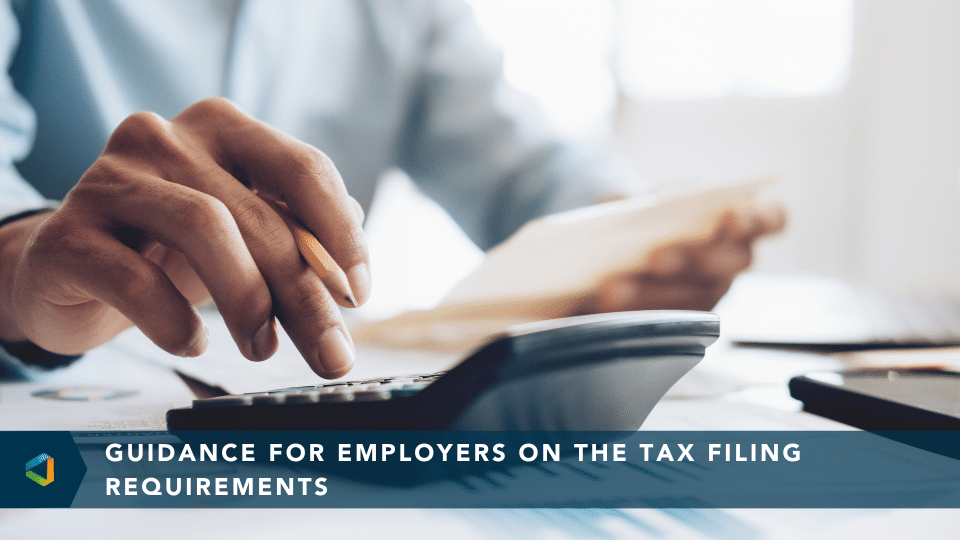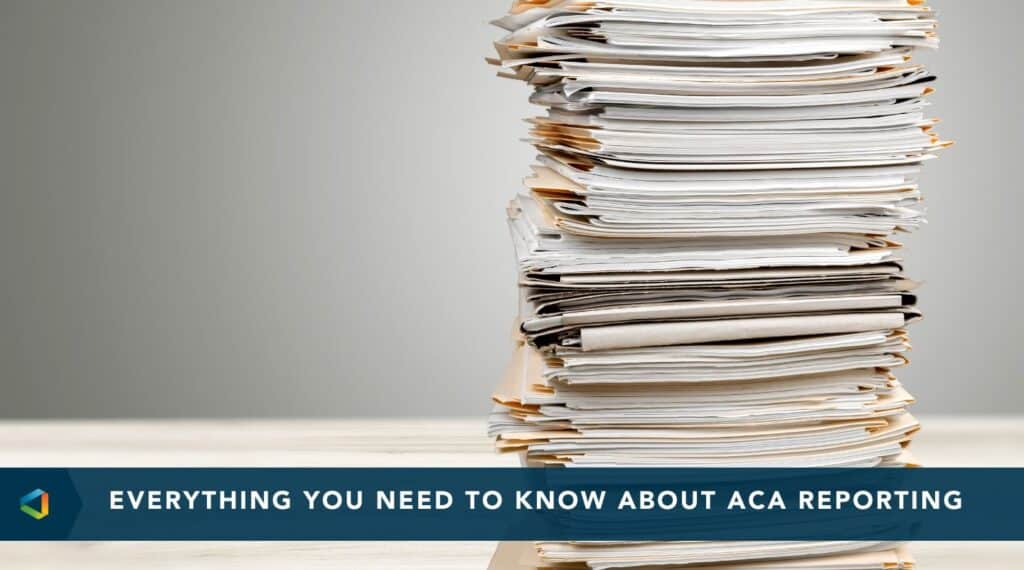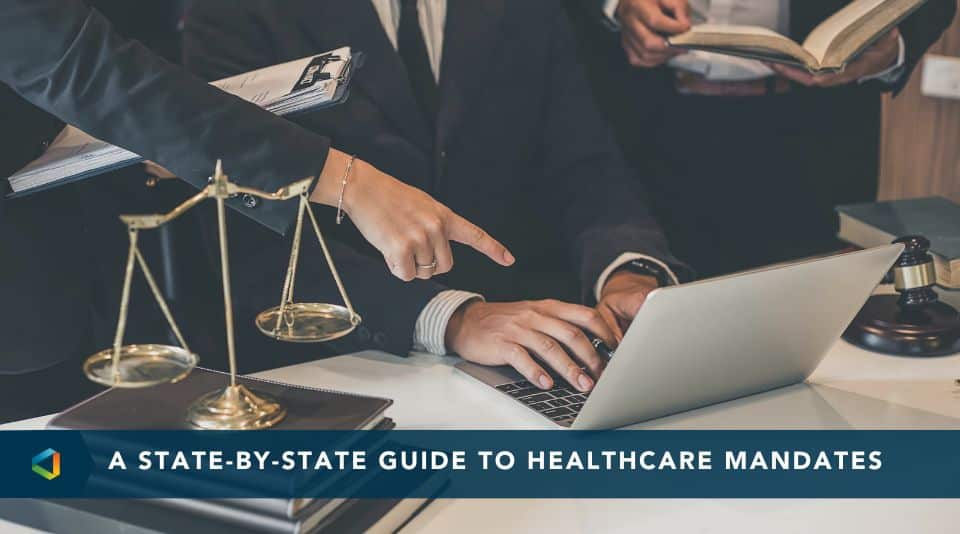Compliance Confidence
2023 Year-End Benefits Compliance Reminders for Employers
2023 Year-End Benefits Compliance Reminders for Employers
End of year is a great time to review and prepare for upcoming compliance deadlines related to your group health plan offerings. Here’s what you need to know to prepare for a new year:
Affordable Care Act:
The end of the calendar year means it is time again for employers that are “applicable large employers” (ALEs) or employers that sponsor self-insured health plans constituting minimum essential coverage (MEC) to prepare for ACA reporting.
The deadline for providing statements (Forms 1095-B and 1095-C) to participants and full-time employees is March 1st, 2024. The due date for filing the relevant forms with the IRS is February 28th, 2024, if filing by mail or April 1st, 2024, if filing electronically.
However, note there has been a change in electronic filing threshold for 2024. Previously, employers could file their ACA Reporting Forms (i.e., Form 1094 series and Form 1095 series) by paper if they were filing fewer than 250 ACA Reporting Forms. The electronic filing threshold for information returns required to be filed on or after January 1st, 2024, has been decreased to 10 or more returns. The 10-or-more requirement applies in the aggregate to certain information returns that includes ACA Reporting Forms and other tax reporting forms, such as Form W-2s, Form 1099s, and Form 5330s. This means an employer may be required to file fewer than 10 ACA Reporting Forms but still have an electronic filing obligation based on other kinds of information returns filed.
Gag Clause Attestation
The first year of annual attestation of compliance with the CAA-21’s gag clause prohibition is due December 31st, 2023 and annually thereafter. Plans and insurers must annually submit an attestation to the Department of Labor, Department of Health and Human Services, and Treasury that their plan network and provider contracts do not include certain gag clauses. A gag clause is a “contractual term that directly or indirectly restricts specific data and information that a plan or issuer can make available to another party.”
Specifically, these contracts cannot restrict a plan or issuer from:
- Providing provider-specific cost or quality-of-care information or data to referring providers, the plan sponsor, participants, beneficiaries, or enrollees (or individuals eligible to become participants, beneficiaries, or enrollees of the plan or coverage);
- Electronically accessing de-identified claims and encounter information or data for each participant, beneficiary, or enrollee upon request and consistent with privacy rules under the Health Insurance Portability and Accountability Act (HIPAA), the Genetic Information Nondiscrimination Act (GINA), and the Americans with Disabilities Act (ADA); and
- Sharing information or data described above or directing such information to be shared with a business associate, consistent with applicable privacy rules.
The attestation applies to fully insured and self-insured group health plans, including ERISA plans, non-federal governmental plans, and church plans. Additionally, this requirement applies regardless of whether a plan is considered grandfathered under the ACA. Attestation is not required for excepted benefits, and the agencies will not enforce the requirement against health reimbursement arrangements (HRAs) or other account-based plans.
Internet Price Comparison Tool
An additional transparency requirement under the ACA is coming due for plan years beginning on or after January 1st, 2024. Group health plans and insurers are required to disclose certain cost-sharing information to participants and beneficiaries – in most cases using an internet-based self-service tool – to provide these individuals with greater cost transparency. Implementation of the internet-based price comparison tool was in two phases. For plan years beginning on or after January 1st, 2023, plans and insurers were required to make price comparisons available for a preliminary set of 500 items and services. Beginning in 2024, plan years beginning on or after January 1st, 2024, the plans and insurers must expand the internet-based price comparison tool to include all covered items, services and drugs.
Employers will want to confirm with their insurers and/or third-party administrators (TPAs) to confirm they are providing and maintaining the internet-based self-service tool, and that this responsibility is addressed in a written agreement. For self-insured plans, unlike fully insured plans, the legal responsibility for this tool stays with a self-insured plan even if its service provider agrees to provide the price comparison tool on its behalf.
Plan Document Updates
The start of a new plan year often brings changes to group health and welfare plans. Employers should ensure that plan documents are updated to reflect such changes being made for the new plan year. If amendments are adopted, a Summary of Material Modification (SMM) or new Summary Plan Description (SPD) should be issued. This is also a great time to review plan documentation (e.g., written plan documents, SPDs, wrap plan documents) to ensure all previous changes to the plan have been incorporated into the documentation. Employers will want to review any previously adopted COVID relief where necessary. While some of the COVID-related changes are permanent, many ended during the 2023 plan year due to the end of the COVID-19 Public Health Emergency and the COVID-19 National Emergency. Employers that made changes to their health and welfare plans, whether required by law or voluntarily, will need to adopt appropriate plan amendments and SMMs explaining changes.
Nondiscrimination Testing
Employers that sponsor plans operating on a calendar year plan year should be thinking about nondiscrimination testing. No corrective action is allowed once the plan year closes. Any adjustments need to be made prior to the close of the plan year.
Most employee benefit plans that provide tax-advantaged benefits include nondiscrimination rules to discourage employers from providing more generous benefits to highly compensated and/or key employees. This includes Section 125 cafeteria plans, self-insured health plans, health flexible spending accounts (health FSA), dependent care assistance programs (dependent care FSA), health reimbursement arrangements (HRA), and group term life insurance plans. Those nondiscrimination requirements apply on a plan year basis.
As the end of the plan year nears, employers should consider whether a pre-test should be conducted prior to the close of the plan year. If there is a chance an employer’s plan might not pass, testing prior to the close of the plan year allows the employer to take corrective action. The end of the plan year also means employers should be preparing to have final testing done after the close of the plan year.
Life Insurance Imputed Income
As a reminder, employers should review the taxation of group term life insurance by the end of the year. Under IRC Section 79, employees and retirees are taxed on the value of employer-paid group term life insurance coverage over $50,000. For benefit amounts over $50,000, employers must add imputed income to taxable wages using IRS Table I rates, which are provided in Publication 15-B.
This rule applies to group term life policies that are “carried directly or indirectly” by an employer, which means the employer subsidizes the cost because (1) it contributes directly to the cost of coverage, (2) voluntary rates “straddle” the IRS Table I rates, or (3) employees pay for voluntary coverage with pre-tax salary reductions.
Imputed income is added to an individual’s gross wages and is subject to withholding for Social Security and Medicare taxes (also known as FICA taxes). Although federal and state income taxes are not withheld, imputed income is reported as taxable federal and state income on Form W-2.
Please note that different taxation rules apply for partners in a partnership and more than 2% S-corporation shareholders. Always consult your tax advisor as needed.
Staying apprised of compliance requirements in the ever-changing landscape of healthcare reform can be challenging. OneDigital’s Compliance Consulting team is here to help clients remain in compliance year-round, providing tools and resources for compliance peace of mind. Reach out to your OneDigital representative if you have any questions.
Looking for additional information on the rules and regulations that could affect your organization? Check out the 2024 HR Guide to Compliance.




